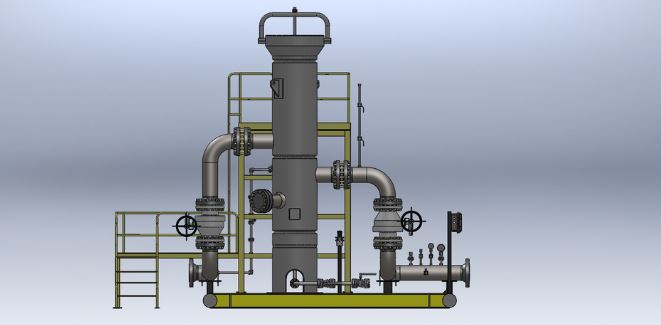Why Industrial Filtration Is So Important

Most industries use water in their daily operations. In the process, the water collects oil and other types of debris after all this is done. Industrial water is disposed of through conventional channels such as the public sewerage system and water sources such as rivers and streams. This is the reason why this water needs filtration to remove substances that could be harmful to the environment.
Let us look at some other reasons why industrial filtration is vital.
Purification – one substance that undergoes filtration regularly in an industry is water. After performing its industrial function, water collects oil hence needs cleaning before disposal or recycling. When water undergoes filtration, it can be reused or recycled to be used for other purposes such as cleaning or watering plants around the compound. In water treatment plants that handle for human use, filtration is a necessary process that ensures no debris or other harmful substances get into the system.
Prolongs the Lifespan of Equipment – unwanted particles and substances in water damages the industrial equipment when in operation. Industrial equipment needs to always be in top condition for maximum output. Particles that are leftover in pipes can lead to metal erosion which will, in turn, cause the malfunction of the equipment.
Safety – in particular companies, filtration helps in preventing cross-contamination of the products produced in the companies. Apart from water, other substances that require filtration in a manufacturing plant include gas/solid separation, liquids/solids separation, or solids/solids separation. Also, filtration helps avert accidents in the workplace that could be brought about by a malfunction of equipment loaded with industrial substances and particles that are unwanted in the machine.
Helps meet the requirements of EPA – the Environmental Protection Agency sets the standards for protecting environmental and human health by ensuring safe and responsible waste disposal systems. Before a company receives certification from EPA, it has to demonstrate how industrial waste is cleaned and disposed of its premises.
Ensures Efficiency – industrial filtration enables the smooth flow of operations in a company. It saves time that would have been used in sorting the debris at the surface.
Types of Filtration
There are several types of filtration that include centrifugal, gravity, vacuum, cold/chill, hot, and multi-layer filtration. All these different types of filtration serve different industrial filtration purposes depending on the kind of operation.
Centrifugal filtration is where rotational movement is used to separate liquids. Through this process, separation of liquids is achieved through their different densities.
Vacuum filtration is done by sucking dust particles on the surface through atmospheric air.
Gravity filtration applies the law of gravity to remove solids from liquids through the direction the fluid flows, that is from top to bottom.
Chill filtration is best suited in the removal of fatty acids or proteins by acquiring a negative temperature.
Hot filtration removes minute impurities out of crystalline compounds. The crystalline compound is dissolved in a solvent at the right temperature. When the liquid compound cools down, the crystallized compounds are clearly visible, which enables filtration of the solution.
Multi-layer filtration is an ancient method that was used in water filtration using sand. Sand that is of different sizes and types is arranged where the solution passes through, and unwanted particles are trapped in the sand. Industrial filtration is essential as it helps preserve the environment by limiting the number of impurities released into the atmosphere. It is an asset that any manufacturing company needs to have.
Read Also:





